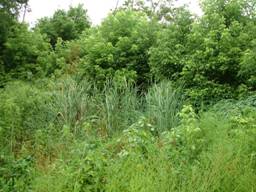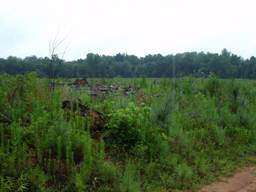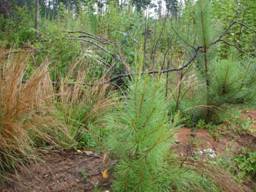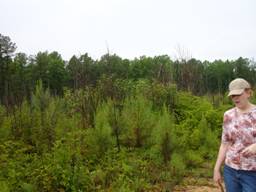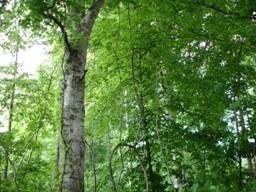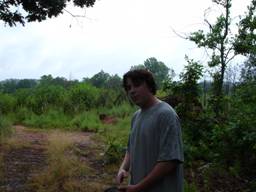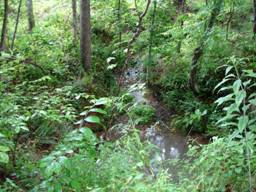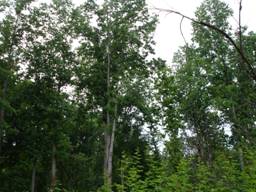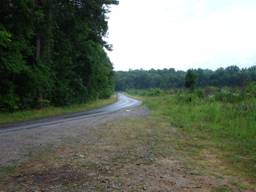We bought 178 ½ acres of land in Brunswick County, Virginia. For comparison, Humboldt Park in Milwaukee is around 90 acres. Owning a forest has long been my dream. This will be a forest soon. It was cut over in 2001 and replanted with loblolly pine in 2003. Loblolly is the most important timber tree in the Southeast. Southern pine (which include loblolly, slash, shortleaf and longleaf pine) supplies 58% of the timber used in the U.S.
The pines on our land are genetically superior super trees and will grow fast. I took the pictures below in June. When I went back in August, some had literally doubled their size and some were taller than I was.
We also have a lot of hardwood on the place and three creeks. The hardwoods are about as old as I am. I have a wonderful little grove of beech trees near one of the creeks and some very big white oak, tulip tree and sweet gum. The under story bushes are American holly. It grows wild down here. The land will just get nicer each year. I am looking forward to growing my trees and taking care of things like the wetlands.
There is a group of hunters who lease hunting rights. They are local guys who take care of the land for me. They claim to have hunted this land for more than 100 years (their families at least). They tell me they will run off anyone who tries to cause trouble and I believe they will.
I also joined the Virginia Forestry Association. Next year I will be the communications director for the Virginia Tree Farm. It doesn’t pay anything, but I think it will be fun. I hope also to meet people who can help me figure out how to best care for my land.
You can tell how excited the kids were to be there.

